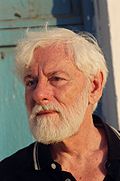Reprinted from Gush Shalom

Israel PM Netanyahu criticized for .excessive. spending
(Image by Economy and Stock, Channel: Economy and Stock) Details DMCA
MANY YEARS ago I received a phone call from the Prime Minister's office. I was told that Yitzhak Rabin wanted to see me in private.
Rabin opened the door himself. He was alone in the residence. He led me to a comfortable seat, poured two generous glasses of whisky for me and himself and started without further ado -- he abhorred small talk -- "Uri, have you decided to destroy all the doves in the Labor Party?"
My news magazine, Haolam Hazeh, was conducting a campaign against corruption and had accused two prominent Labor leaders, the new president of the Central Bank and the Minister for Housing. Both were indeed members of the moderate wing of the party.
I explained to Rabin that in the fight against corruption I could make no exceptions for politicians who were close to my political outlook. Corruption was a cause in itself.
THE FIRST generation of the founders of Israel was free of corruption. Corruption was unthinkable.
Indeed, purism was carried to extremes. Once a prominent Labor leader was criticized for building for himself a villa in a Jerusalem suburb. There was not the slightest suggestion of corruption. He had inherited the money. But it was considered scandalous for a Labor leader to live in a private villa. A "comrades' court" decided to expel him from the party, and that was the end of his career.
At the same time, an official residence was built for the Foreign Minister, so he could receive foreign dignitaries in decent surroundings. The minister at that time, Moshe Sharett, believed that it was wrong to hold on to his own private apartment, so he sold it and donated the money to several charitable associations.
THE NEXT generation was quite different. It behaved as if it owned the place by divine right.
Its most typical representative was Moshe Dayan. He was born in the country and David Ben-Gurion appointed him Chief of Staff. In this capacity he directed several "retaliation raids" across the border and then the 1956 attack on Egypt which ended in a resounding victory (helped by the Franco-British invasion of the Suez Canal area behind the back of the Egyptian army.)
Dayan was an amateur archeologist. He stuffed his private villa (by that time, villas were already allowed) with ancient artifacts that he dug up all over the country. That was strictly illegal, since unprofessional digging destroyed historical evidence, making it impossible to define the date. But everybody winked. After all, Dayan was a national hero.
Then my magazine published a shattering revelation: Dayan did not just keep the artifacts in his garden. He sold them all over the world, with a personal signed note that shot their price up. This revelation triggered a huge scandal and inflamed a lot of hatred -- towards me. In a public opinion poll published that year I was chosen as "the most hated person" in the country, beating the chief of the Communist party to the title. (Such polls have since been discontinued.)
Dayan's brother-in-law was Ezer Weitzman, the general responsible for the air force that won the fabulous victory in the 1967 Six-day War. It was an open secret that Weitzman was kept by an American Jewish millionaire and lived in a luxurious villa in Caesarea, the most prestigious place in the country (where Binyamin Netanyahu now has his own private villa.)
FOR SOME years this has been a general fashion. Every Jewish millionaire in America had "his" Israeli general, whom he kept in style and who was his pride and joy. For rich Jews, having an Israeli general at family feasts was an obligatory status symbol.
Ariel Sharon, for example. The son of poor parents, inhabitants of a cooperative village, he finished his army career and lo and behold -- he suddenly was the owner of a huge ranch. It was given to him as a present by an ex-Israeli American multi-millionaire. (Rumors had it that the millionaire deducted the money from his US taxes.)
That was at a time when Israeli generals were not only heroes at home, but all over the world. Moshe Dayan, easily recognizable by his black eye-patch, was a hero in Los Angeles no less than in Haifa.
(Note: You can view every article as one long page if you sign up as an Advocate Member, or higher).





